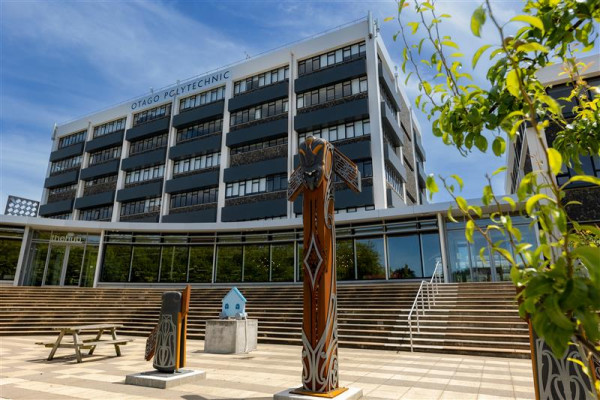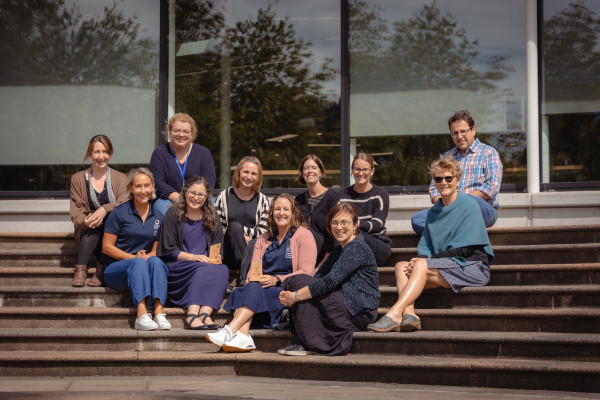- Tūhono home Hoki ki Tūhono
-
- Staff Directory
- Chief Executive Office Auckland International Office Corporate Services Finance Campus Services Functions and Catering Information Systems and Support Marketing, Communications and Engagement Learner Journey Academic Registry International Learner Services Te Punaka Ōwheo
- Learner Experience Academic Excellence Central Campus College of Community Development and Personal Wellbeing College of Engineering, Construction and Living Sciences College of Health College of Work Based Learning Open Education Resource/OERu Research and Postgraduate Studies Te Maru Pumanawa | College of Creative Practice and Enterprise
- Māori Development and Kaitohutohu Office People, Culture & Safety People and Culture Childcare Centre Te Ama Ako | Learning and Teaching Development Wellbeing and Safety Auckland Staff Directory Executive Office Academic Corporate Services Marketing and Business Development Human Resources Campus Quality and Programme Development
-
 Our people make a better world
Our people make a better world
We build the capabilities of individuals, organisations and communities and help them to realise their potential.
Staff Directory
-
- Tools
- Academic Integrity Declaration Form AIC Applications Dashboard Approved Programmes Approved Programme Fees Centralised Assessement Repository Chemwatch CMS - Tūhono & StudentHub updates Course Evaluation and Surveys CRM Applications CRM customer service hub Delegations policy/process Disability and Neurodiversity Dynamics 365 (CRM) EBS Ontrack EBS Report Email Security Personal Portal Employment Matters / Solarworkplace / Performance Reviews eTaxi eTV
- Financial Variance Reporting Hidden Disabilities Sunflower programme FCM travel intranet InPlace International entry requirements Knowledgebase articles Learner Support Dashboards Linkedin Learning Log a job with Marketing Login as an applicant Microsoft 365 Moderation App Moodle OP Docs OP Docs - Publishing OP Image Libraries Performance Excellence Portal Product Evaluation Panel
- Policy Library Privacy Programme and Course Design and Development Qualtrics XM RDS Remote Access Support Portal Research Database Robertson Library Staff FAQs about Graduation Status of Programmes Student Hub (Kāpehu demonstration view) Study Abroad info for learners Tūhauora I Wellbeing resources Uniprint Vault Webexpenses Auckland Tools
-
 Vault
Had an accident or near miss?
Log it here
Vault
Had an accident or near miss?
Log it here
-
- Communities
- Community AI Steering Committee Ally Network EBS Community of Interest EdTech Champions Health & Wellbeing Research Internal Evaluation Neurodiversity Professional Team Professoriate Proud@OP Student Support Website Advisory Group Web Champions Working under the Rainbow Project Learner Capability Trade Training Centre
- Committee Academic Committee Animals@OP Diversity and Equity Doctor of Professional Practice Committee Kaunihera Whakahaere - Leadership Council Internal Evaluation Learning & Teaching Leadership Team Library Committee Mental Health and Wellbeing Advisory Group Otago Polytechnic Board of Directors Pastoral Care Code Committee Programme Approvals Committee Research and Postgraduate Committee Research Ethics Committee Staff Subcommittee
- Think Tanks Mātauraka Our learners achieve educational success Pūtea Our financial success Tākata Our people, our team, our community Tiriti Our active commitment as a Treaty partner Tūroa Our commitment to be a sustainable and responsive organisation
-
 Create a community
Create a community
Do you have a community, committee or project that you'd like represented here?
Communities
-
- About OP
- Keep up to date All news All events All notices All blogs Share your info Create a news article Create an event Create a notice Create a blog
- Community and Partnerships Alumni and friends Education Foundation Operational information Academic calendar 2025 Academic calendar 2026 Current vacancies Dunedin campus map Our policies Topical FAQs
- Who we are About OP Commemorative sites Māori Strategic Framework Merchandise OP Our history Our strategic priorities Pasifika Strategic Framework (2025-2030) Vision and Values Working for us OP job opportunities Wellbeing Calendar Working at OP
-
New Zealand: 0800 762 786
contact us
International: +64 3 477 3014
Developing a protocol for an online exercise program forcerebral palsy clients using 'Physitrack'
Author: Lauren Kelly
Developing a protocol for an online exercise programme for cerebral palsy clients using 'Physitrack'
Lauren Kelly
19 November 2021
Kelly, L. (2021). Developing a protocol for an online exercise programme for cerebral palsy clients using 'Physitrack'. (A thesis submitted in fulfilment of the degree Master of Applied Science at Otago Polytechnic, Dunedin, New Zealand) https://doi.org/10.34074/thes.5589
Abstract
Background:
Children and adolescents with Cerebral Palsy (CP) often receive exercise programs to assist in therapy, habitual exercise, exercise motivation and rehabilitation. Adherence and motivation to exercise programs are two necessary components to achieve exercise goals but can be challenging to accomplish due to difficulties in acquiring novel motor skills, leading to poor performance in daily living activities and restricted participation. The advancement and accessibility of technology show successful integrations in other special populations of games and applications (apps) (i.e., Virtual reality (VR)). However, the use of task-specific online exercise programs/apps within the CP population is unknown.
Methods:
The literature review (Chapter 2) systematically searched and reviewed three main areas critical to this thesis: 1) exercises for CP clients, 2) uses of online apps/technology, and 3) reviewed relevant outcome measures. Data from the literature review was used to develop a protocol for a Randomised Control Trial (RCT) (Chapter 3).
Results:
Eleven studies were identified, and data was extracted regarding technology used, the frequency, intensity, time, and type (FITT) principle and associated outcome measures. This information was then used to develop an evidence-based training protocol using the Physitrack app that will serve as the basis of a future RCT. The protocol developed in Chapter 3 was submitted to the Journal of Strength and Conditioning Research for further research into technology-specific interventions for CP exercise programs.
Conclusion:
An 8-week individualised training program delivered using the Physitrack app, which evaluates clinical and non-clinical outcome measures would provide a robust and easy-to-follow program to reduce burnout/frustration/drop out of caregivers and CP clients. The impact of COVID-19 lockdown resulted in the main study RCT being a protocol as participants for the study were unable to be recruited. A future direction for this thesis would be to complete the RCT protocol in Chapter 3.
Keywords: cerebral palsy, randomised controlled trial, protocol, online application, physical activity, disability
Lauren's research was supervised by Codi Ramsey, Richard Humphrey, and Mat Blair.
License
This thesis is publically available under a Creative Commons Attribution-NonCommercial-NoDerivatives licence CC BY-NC-ND 4.0 International.
